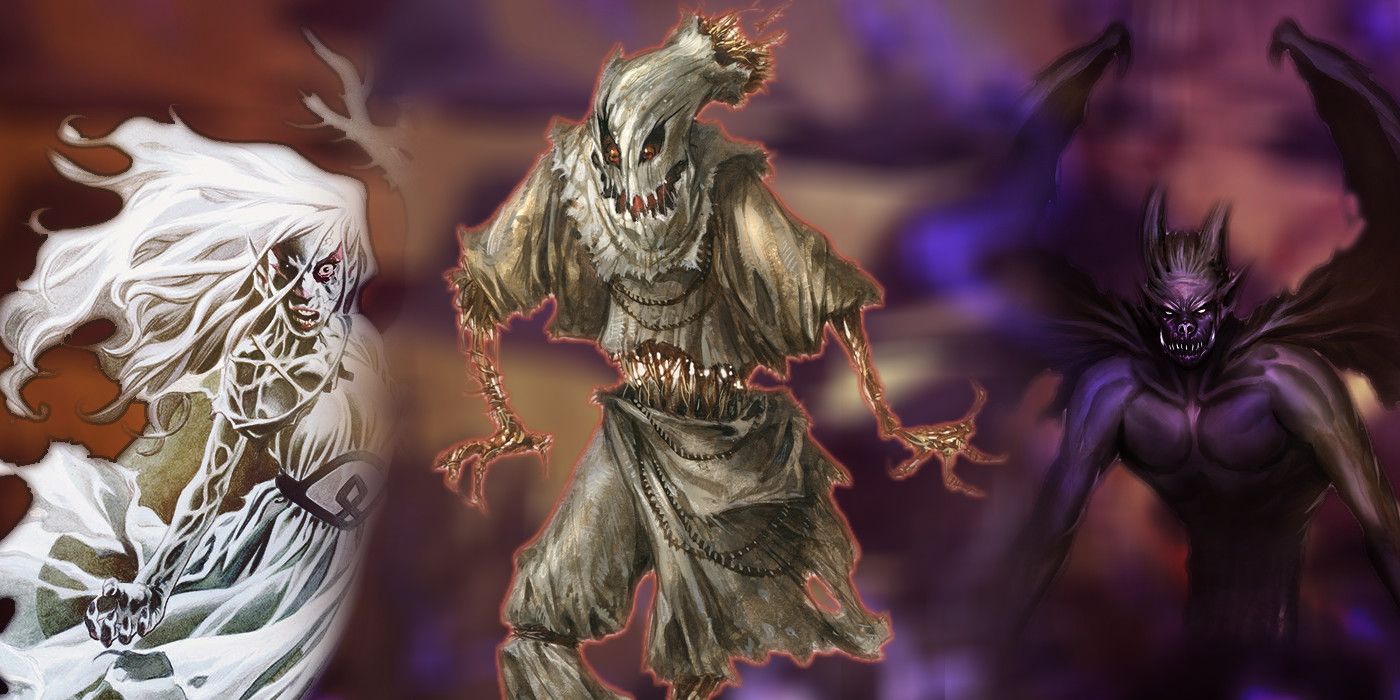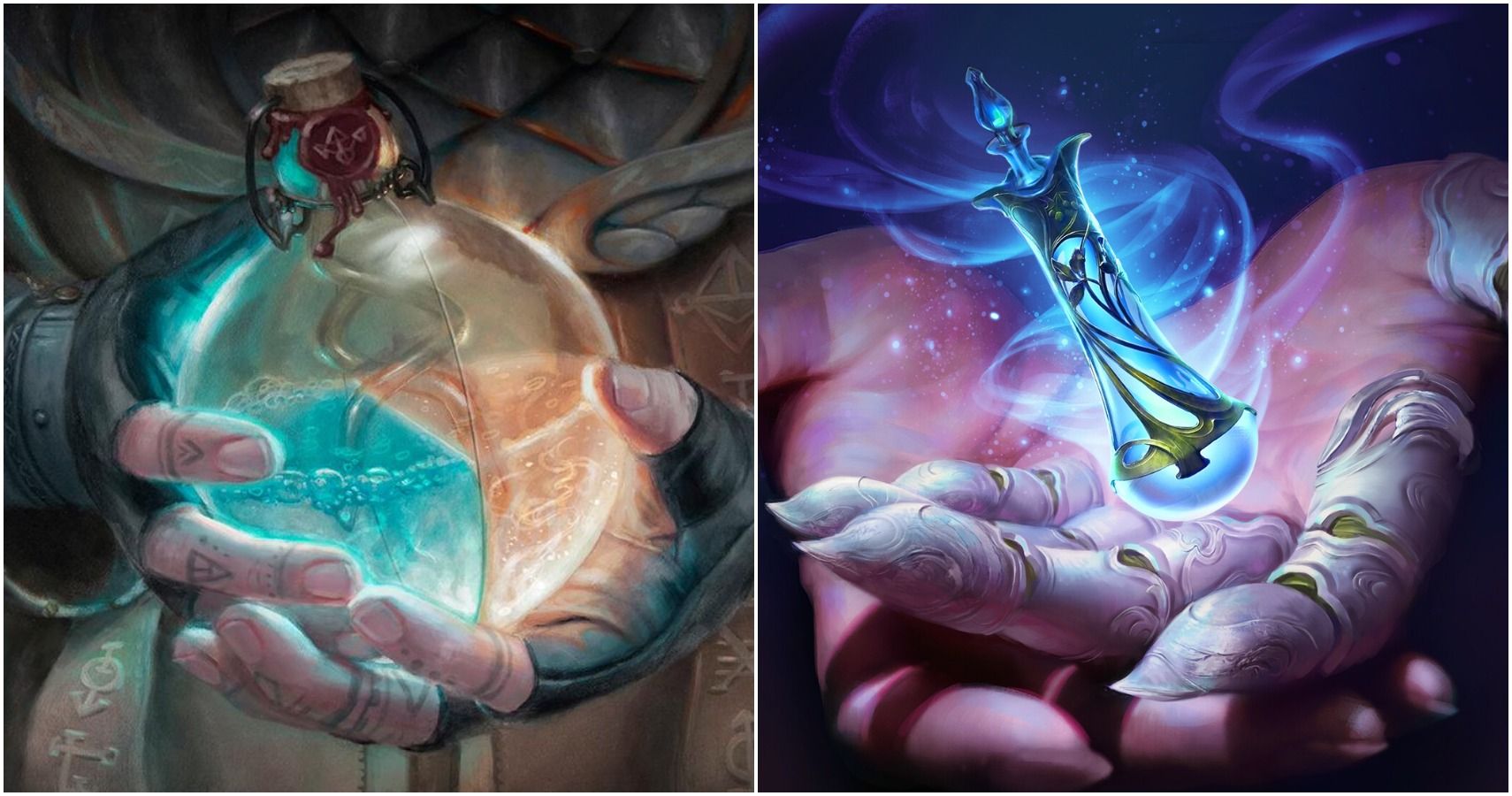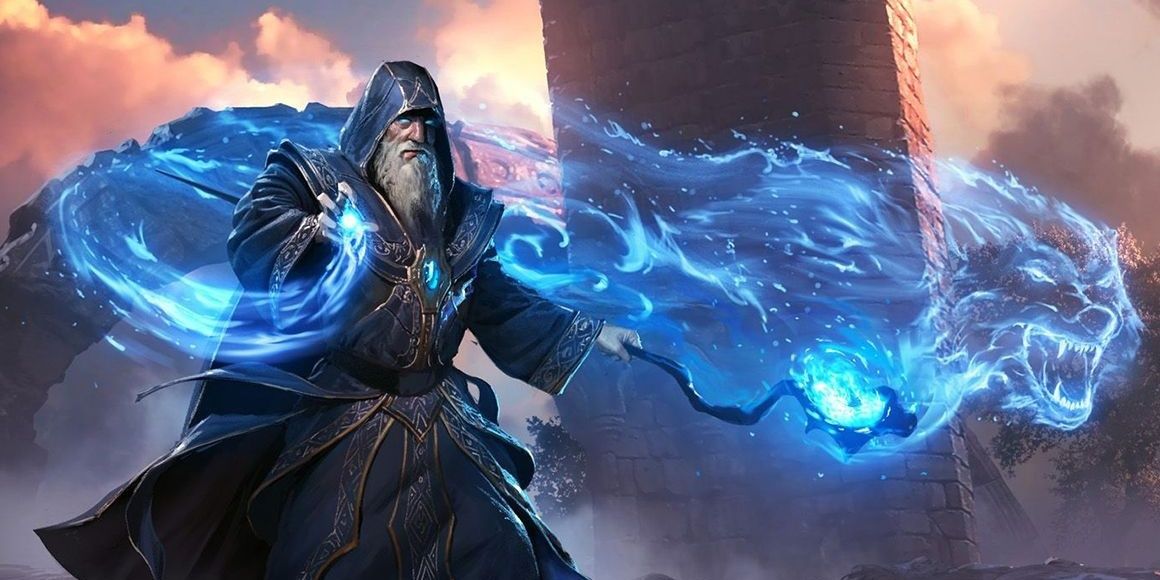One of the things that draw so many people to Dungeons & Dragons is the freedom that exists within the game. The games allows players to create diverse and unique characters that can excel in numerous skills. Players can specialize in almost any type of weapon or magic and be equally effective as any other character. However, there is one combat option that falls flat compared to others: poison.
Poison is widely accepted as D&D's worst damage type, as it is simply the least effective and versatile damage type in the game. Everything that poison can do other damage types and magical abilities can do just as well, if not better.
Many DnD Creatures Have Poison Immunity

A lot of the monsters in D&D Fifth Edition are specifically designed to be strong against certain combat styles and damage types. These creatures will either be immune or resistant to a particular damage type or condition. Unfortunately, lots of monsters (like undead, constructs, and fiends) have resistance or immunity to poison damage and the poisoned condition.
It's not just monsters that have defenses against poison, either. Player characters can also very easily become resistant or immune to poison. Dwarves, Reborn, Warforged, Green Dragonborn, Yuan-Ti, and Stout Halflings all receive poison resistance from their race. The Monk class becomes immune to poison at level 10, and Paladins can instantly get rid of the poisoned condition with Lay on Hands. There are also a number of spells like Protection from Poison, Lesser Restoration, Aura of Purity, and Heroes' Feast which will negate or weaken the effects of poison.
For most adventuring parties and monsters, poison is simply not a real threat, especially as the campaign goes on and players and monsters become stronger. Poison damage and the poisoned condition is more of an annoyance, if it has any effect at all.
If a player is lucky enough to come across a creature that lacks immunity or resistance to poison, there is still another problem. Most spells and items that deal poison damage require a creature to fail a Constitution saving throw to take full effect. Creatures that are used for big boss battles usually have a lot of health, which means a high Constitution score. They will likely make their saving throw, giving them resistance or immunity to the poison anyway. In most scenarios, any other damage or debuff besides poison would be more effective.
Poison Is an Expendable Resource in DnD

There are only a handful of spells that inflict poison damage or cause the poisoned condition, which means most players would have to craft or buy vials of poison. This method comes with its own issues. Most poisons are expensive to and can cost anywhere hundreds or thousands of gold depending on the effect. D&D does allow players to craft their own poisons with a Poisoner's Kit, but they still need to gather materials and spend time making the poison. Some Dungeon Masters might require an ability check to see if a player is successful in crafting. If that check fails, all that time, money, and effort was wasted.
Even a player is successful in obtaining poison, there are still limitations to overcome. Most poison vials are single-use and only last for a limited amount of time once applied. The poison also needs to be applied in a particular manner, either through a wound, ingestion, inhalation, or touch. On top of that, there are still the same opportunities for the poison to fail. The amount of money, time, and risk that goes into using poison make it not worth the effort.
Magic Is a Much Better Alternative to Poison

Everything that poison is capable of can be mimicked with spell casting. There are tons of spells that inflict a wide range of damage types. If a creature is resistant or immune to one damage type, players can easily switch to another with a different spell; if they have a high CON stat, the player can target a different ability score with another spell.
Spellcasting is also renewable and (mostly) inexpensive. Any expended spell slots will always return after a long rest, so a player doesn't have to worry about permanently running out. Most spells don't have a gold cost attached, and those with a gold cost don't require the player to craft the spell.
While poisons can have other effects besides damage, such as causing blindness, confusion, or paralysis and compeling a target to tell the truth, that's not enough of a boon to make the risk worthwhile. These effects can be beneficial, but they can all be replicated through spell casting. D&D gives players the option to become a skilled and dangerous poisoner, but that poisoner will be at a major disadvantage compared to almost every other option in the game.
"type" - Google News
April 10, 2022 at 08:49PM
https://ift.tt/8put3Ze
DnD 5e: Why Poison Is the Worst Damage Type - CBR - Comic Book Resources
"type" - Google News
https://ift.tt/LJW7C8D
https://ift.tt/ZL5XwF3
Bagikan Berita Ini















0 Response to "DnD 5e: Why Poison Is the Worst Damage Type - CBR - Comic Book Resources"
Post a Comment